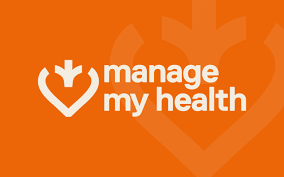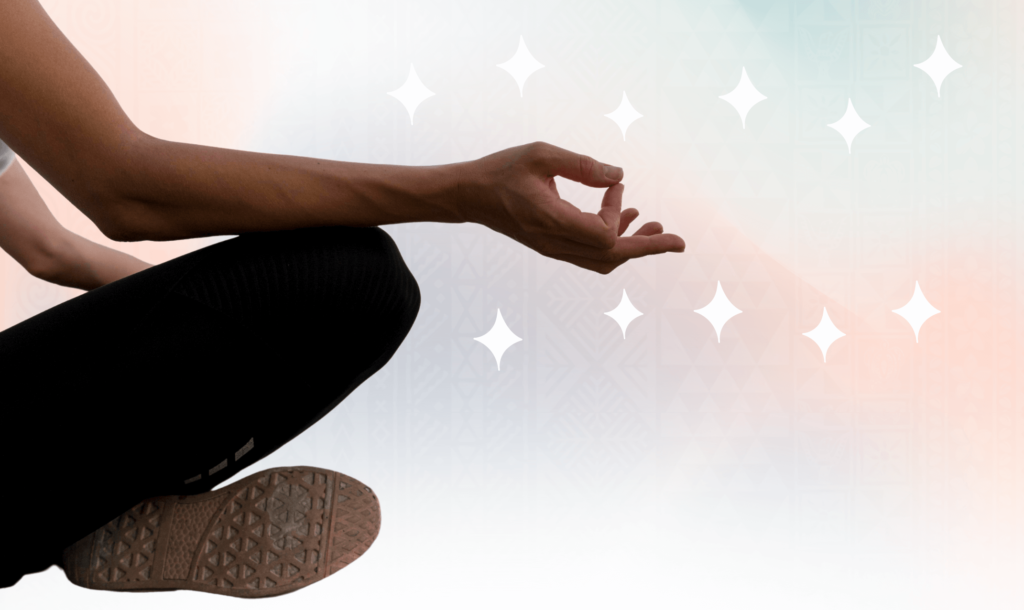
What is mindfulness?
Mindfulness is the practice of being fully present and engaged in the moment, cultivating an awareness of your thoughts, feelings, and surroundings without judgment. It’s about living in the now rather than dwelling on the past or worrying about the future. Mindfulness involves a variety of techniques designed to enhance this state of awareness, such as journaling, digital detoxing, meditation, and mindful eating. These practices are not just about relaxation; they are about developing a deeper understanding of yourself and how you interact with the world, leading to significant benefits for mental, emotional, and physical health.
Mindfulness Practices:
- Journaling: Writing down thoughts and feelings to process emotions and gain self-awareness.
- Digital Detox: Taking breaks from electronic devices to reduce stress and improve focus.
- Meditation: Focusing the mind through deep breathing and relaxation techniques to achieve a state of calm and clarity.
- Mindful Eating: Paying full attention to the eating experience, savoring each bite, and being aware of hunger and fullness cues.
Benefits for You and Your Family:
- Reduces Stress: Mindfulness practices help calm the mind and reduce anxiety.
- Improves Sleep: Techniques like digital detoxing promote better sleep by reducing blue light exposure.
- Enhances Relationships: Mindfulness encourages better communication and deeper connections.
- Boosts Creativity and Focus: By reducing distractions, mindfulness can enhance creativity and concentration.
- Promotes Healthy Habits: Mindful eating leads to better food choices and improved digestion.
By incorporating mindfulness into your daily routine, you and your whānau can enjoy a healthier, more balanced life. Let’s explore in depth four powerful mindfulness practices.
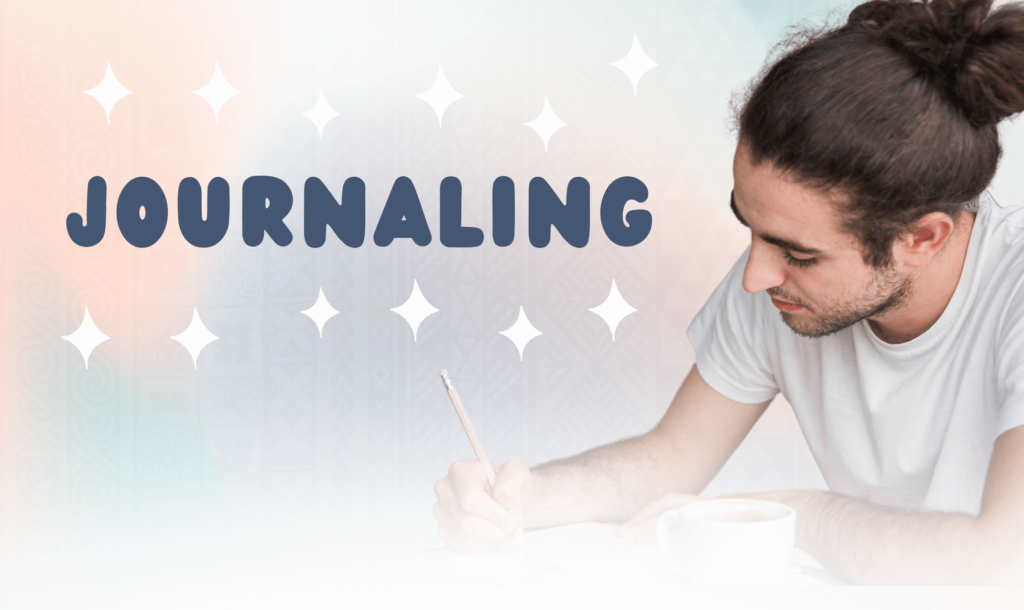
The Power of Journaling
Journaling is more than just writing down your thoughts; it’s a therapeutic practice with numerous health benefits. As Robin Sharma aptly puts it, “Writing in a journal reminds you of your goals and of your learning in life. It offers a place where you can hold a deliberate, thoughtful conversation with yourself.”
6 Creative Ways to Journal
Journaling is a powerful tool for enhancing mindfulness, reducing stress, and boosting creativity. Whether you prefer digital methods or traditional pen and paper, there’s a journaling technique that fits your lifestyle. Here are six creative ways to start your journaling journey:
- Journal on Your Phone: Keep your thoughts and reflections easily accessible by journaling on your smartphone. Use dedicated apps or simple notes to capture your daily experiences on the go.
- Write an Email to Yourself: Need a quick and easy way to journal? Send an email to yourself! It’s a great way to reflect on your day and keep a digital record of your thoughts.
- Type Entries into a Document: If you prefer typing over writing, create a journal in a word processing document. This method allows for easy editing and organization of your entries.
- Write in a Journal: The classic approach—use a physical journal to pen down your thoughts. The tactile experience of writing can be therapeutic and helps to deepen your connection with your reflections.
- Voice Record Entries: For those who find speaking easier than writing, voice recording your journal entries can be a great alternative. This method allows you to capture your thoughts and emotions in real-time.
- Make Quick Notes: Sometimes, you just need to jot down a quick thought or idea. Keep sticky notes or a small notebook handy for capturing fleeting moments of inspiration.
Explore these journaling techniques and find the one that resonates with you. Start your journaling journey today and discover the positive impact it can have on your life.
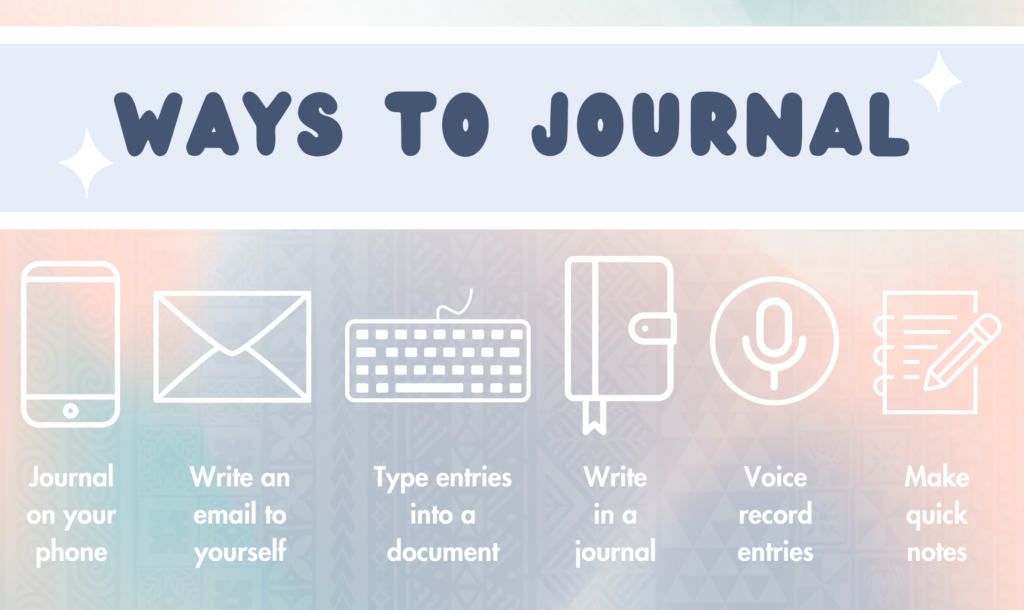
Health Benefits of Journaling:
- Reduces Stress: Writing about your feelings can help clear your mind and reduce anxiety. It’s a simple way to process and release pent-up emotions.
- Improves Mood: Journaling provides an outlet for emotional expression, which can lead to a better mood and emotional well-being.
- Enhances Mindfulness: By reflecting on your daily experiences, you can become more aware of your thoughts and feelings, promoting mindfulness.
- Boosts Memory: Documenting daily events can enhance your memory and comprehension skills.
- Strengthens Immune System: Studies have shown that expressive writing can even improve immune function.
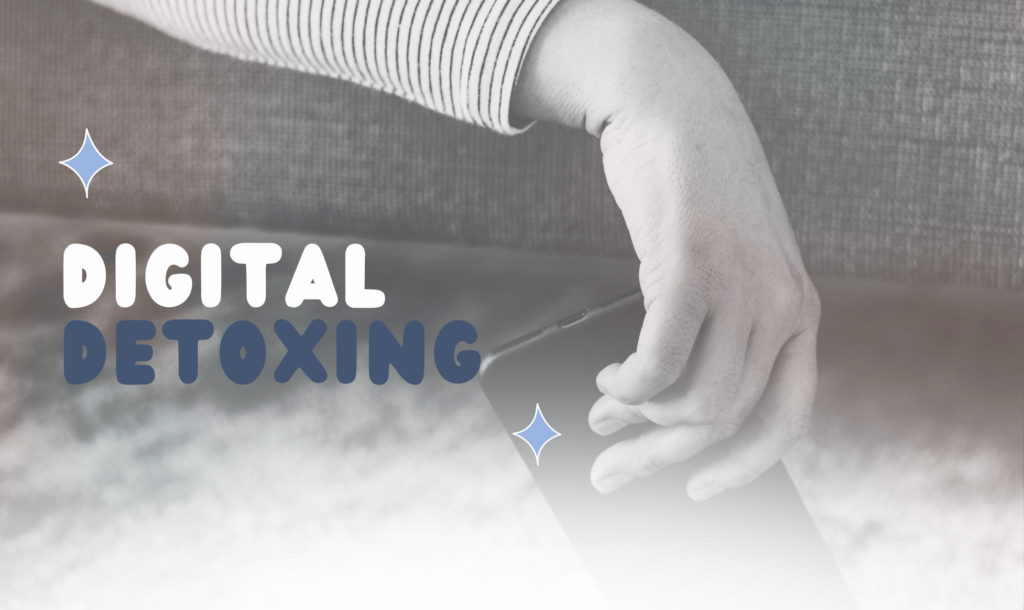
Health Benefits of Digital Detoxing:
In our digital age, constant connectivity can lead to stress, disrupted sleep, and strained relationships.
In addition to this, our youth are constantly challenged in today’s world by excessive screen habits. The pervasive use of smartphones, tablets, and computers has become integral to their daily lives, and the constant connectivity can impact their mental and emotional health, contributing to stress, anxiety, and difficulties in maintaining focus.
Taking a break from digital devices—known as a digital detox—can have profound health benefits for the whole whānau.

Improved Sleep: A study published in the Journal of Clinical Sleep Medicine found that blue light from screens can delay melatonin production by up to three hours, disrupting sleep patterns. Reducing screen time, especially before bed, promotes better sleep quality.

Better Relationships: Research from the University of Essex shows that having a phone present during conversations can reduce the quality of interactions and interpersonal trust. By minimizing screen time, you can enhance face-to-face communication and deepen your relationships.
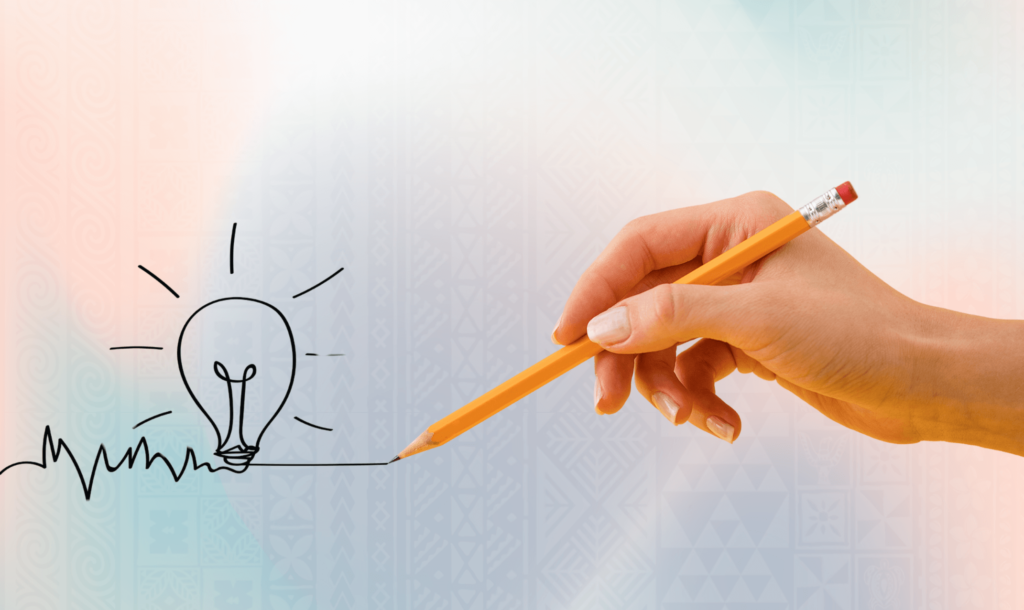
Enhanced Creativity: According to the University of California, Irvine, digital distractions can hinder focus and concentration. Taking breaks from screens can boost creative thinking and problem-solving abilities.
Incorporating regular digital detoxes into your daily routine can contribute to a healthier and more balanced lifestyle. Let’s empower each other – and in particular our rising generation, to embrace mindfulness and navigate the digital world with greater awareness and resilience.
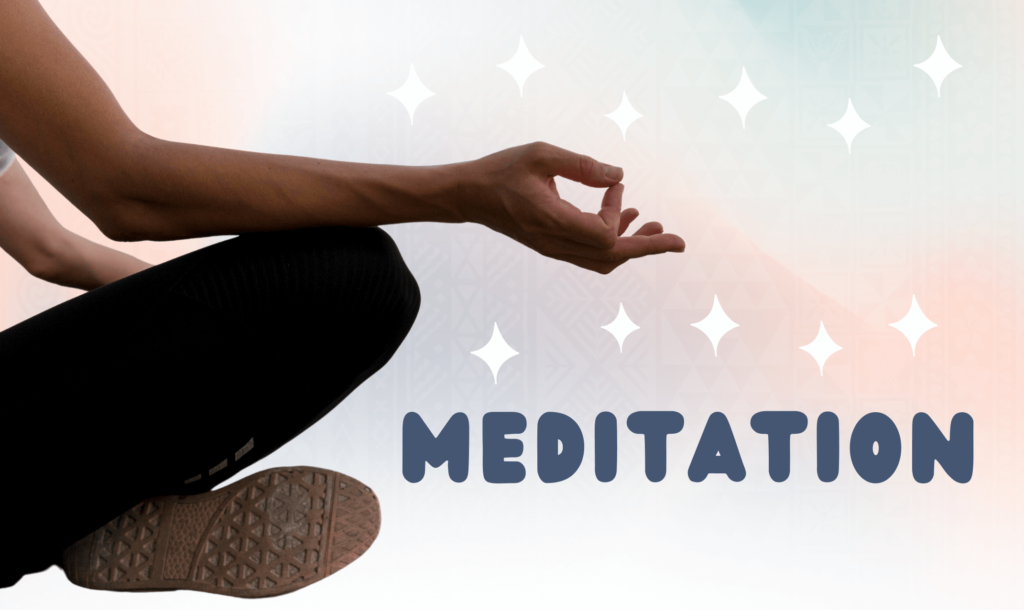
Meditation for Mind-Body Wellness
Meditation is a cornerstone of mindfulness practices, offering a host of benefits for both mental and physical health. It involves focusing the mind and eliminating distractions to achieve a state of relaxation and awareness.
Health Benefits of Meditation:
- Reduces Stress: Meditation helps calm the mind and reduce stress by encouraging deep breathing and focused attention.
- Improves Emotional Health: Regular meditation can increase self-awareness and promote a positive outlook on life.
- Enhances Concentration: By training the mind to focus, meditation can improve attention span and cognitive function.
- Promotes Physical Health: Studies have shown that meditation can lower blood pressure, reduce symptoms of anxiety and depression, and even strengthen the immune system.
How to get started:
- Find a Quiet Space: Choose a quiet, comfortable place where you won’t be disturbed.
- Sit Comfortably: Sit in a comfortable position with your back straight. You can sit on a chair, cushion, or on the floor.
- Close Your Eyes: Gently close your eyes to help you focus inward.
- Breathe Naturally: Begin by breathing naturally. Focus on the sensation of your breath entering and leaving your nostrils or the rise and fall of your chest.
- Focus Your Mind: Direct your attention to your breath. If your mind wanders, gently bring it back to your breath.
- Start Small: Begin with just 5-10 minutes of meditation each day and gradually increase the time as you become more comfortable.
- Use a Guide: Consider using a guided meditation app or video to help you stay focused and provide structure.
- Be Patient: Don’t worry if your mind wanders or if you find it difficult at first. Meditation is a practice, and with regular practice, it will become easier.
- End Slowly: When you’re ready to end your session, slowly open your eyes and take a moment to notice how you feel before resuming your day.
Tips for Success
- Consistency is Key: Try to meditate at the same time each day to build a routine.
- Stay Non-Judgmental: Don’t judge yourself if you find it hard to focus. Gently bring your mind back to your breath.
- Make it Enjoyable: Choose a comfortable spot and maybe light a candle or play soft music to create a pleasant environment.
By incorporating these simple steps into your daily routine, you’ll be well on your way to reaping the benefits of meditation.
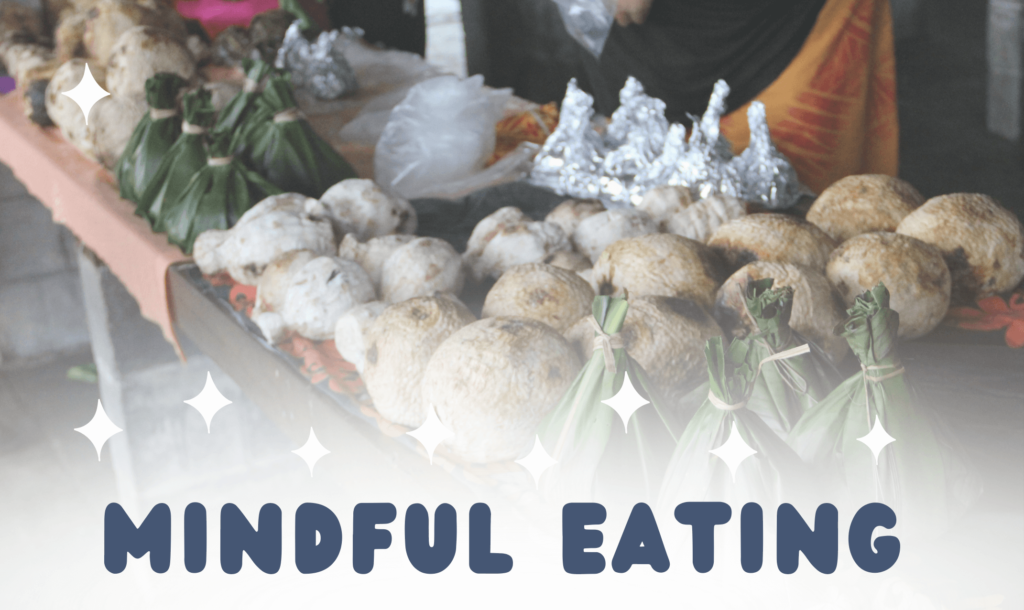
Mindful Eating for Better Nutrition
Mindful eating is the practice of paying full attention to the experience of eating and drinking. It involves observing the colors, smells, textures, flavors, and sensations of food, as well as your thoughts and feelings about eating.
On the other hand, mindless eating, which is often driven by environmental cues, emotions, or distractions, can lead to overeating and associated health problems. For instance, eating while watching TV or working can result in consuming more food than needed without enjoying or even realizing it. Understanding the triggers of mindless eating, such as boredom or peer pressure, can help individuals adopt more mindful eating practices and make healthier choices.
7 Ways to practice Mindful Eating:
- Start with a Mindful Check-In: Before eating, take a moment to assess your hunger levels and emotional state. This helps set a mindful tone for the meal and ensures you are eating for the right reasons.
- Use Your Senses: Engage all your senses by noticing the colors, smells, textures, and tastes of your food. This enhances the eating experience and encourages slower, more deliberate eating.
- Chew Thoroughly: Take the time to chew your food well. This not only aids digestion but also allows you to savour each bite and recognise when you are full.
- Eliminate Distractions: Avoid multitasking during meals. Turn off the TV, put away your phone, and focus solely on the act of eating. This helps you enjoy your food more and prevents overeating.
- Listen to Your Body: Pay attention to your body’s hunger and fullness signals. Eat when you are hungry and stop when you are satisfied, not stuffed.
- Reflect on Your Food: Take a moment to appreciate the effort that went into preparing your meal. This can increase gratitude and enhance the pleasure of eating.
- Practice Gratitude: Begin your meal with a moment of gratitude for the food and the people who contributed to its preparation. This can foster a positive mindset and improve your relationship with food.
These practices can help you develop a healthier, more mindful approach to eating, leading to better overall well-being and a more positive relationship with food.
Health Benefits of Mindful Eating:
- Improves Digestion: By eating slowly and savoring each bite, you can improve digestion and reduce overeating.
- Enhances Enjoyment of Food: Mindful eating encourages you to appreciate the taste and texture of food, enhancing your overall eating experience.
- Promotes Healthy Eating Habits: Being mindful of your eating habits can help you make healthier food choices and recognize hunger and fullness cues.
- Reduces Stress: Focusing on the act of eating can be a form of meditation, helping to reduce stress and promote relaxation.

Mindfulness Month Official Website
Mental Health New Zealand: Mindfulness
Finding wellness in Te Ao Māori
Pacific-led wellbeing services
Mindfulness tools shown to improve health incomes for wāhine Māori
Harvard School of Public Health: Mindful Eating
Embrace Mindfulness This July
This July, we encourage you to explore these mindfulness practices and incorporate them into your daily routine. Whether it’s through journaling, taking a digital detox, meditating, or practicing mindful eating, each of these activities offers unique benefits for your mental and physical health.
Join us on this journey towards a healthier, more mindful life. Let’s make this Mindfulness Month a time of calm, clarity, and well-being. Stay tuned for more tips and insights on how to embrace mindfulness every day.
At Southpoint Family Doctor’s, our mental wellness team are here to support you through your mindfulness journey, and can provide you with more tools that will be helpful. Reach out to us today via our contact form for more information.
